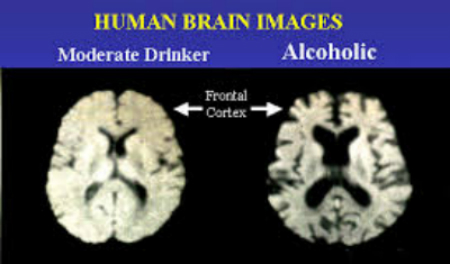
It’s hardly a secret that alcohol affects the brain — its initial effects include wobbly walking, blurred vision, and slurred speech. But although drinking in moderation isn’t necessarily harmful, and can even help with creativity, researchers in the UK are warning that the long-term effects of drinking may go further than the liver, affecting the brain in more permanent ways.
The report, “All in the Mind,” from Alcohol Concern Cymru, a charity based in London, is a supposed “wake up call” for both the public and health care providers. It highlights the dangers of alcohol-related brain damage (ARBD), an umbrella term for a range of conditions resulting from long-term drinking. These include confusion, poor concentration, memory loss, and depression, as well as other issues that may arise from drinking, like traumatic brain injuries (from falling while drunk) and ophthalmoplegia — a weakness or paralysis of the eye.
Many of these problems are also characteristics of a disease known as Wernicke-Korsakoff syndrome (WKS), a debilitating and long-lasting syndrome that actually consists of two separate conditions, according to the National Institutes of Health. One of them, known as Wernicke’s encephalopathy, is defined by mental confusion, eye paralysis, and problems with muscle coordination — oftentimes not altogether. Korsakoff’s psychosis is the other condition, characterized by persistent learning and memory problems.
“Most of us know that alcohol can damage our liver, but the fact that it could undermine our long-term brain function is much less well-known,” said Andrew Misell, director of Alcohol Concern Cymru, in a statement. “And when alcohol-related brain damage is on the radar, the focus is often on older street drinkers. But staff on the frontline have been seeing younger people, and other people who don’t fit the stereotype of a homeless dependent drinker, coming in with ARBD. … We hope this paper will be a wake-up call for all of us who drink.”
Alcohol Concern says that while moderation is key, many people instead go through periods during which they drink heavily, then abstain. The charity notes that vitamin deficiency is a major contributor to ARBD — 80 percent of alcoholics are vitamin deficient — and suggests increasing intake of vitamin B1, also called thiamine, which can be given through injections or pills
Source: medical daily



